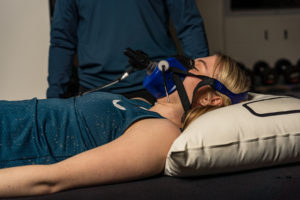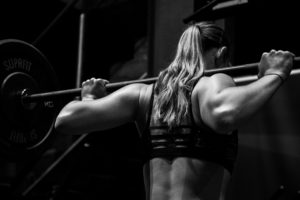A female friend recently asked me,
“Am I supposed to use protein powder? Because I don’t want to gain muscle, I just want to tone and lose weight”.
This isn’t a simple yes or no answer, so let’s take a deeper look into protein supplements…
What is protein powder?
Protein powder is a dietary supplement used to increase ones protein intake. The key word there is supplement, we’ll come back to this later… It is usually combined with milk or water, shaken and then consumed, commonly after a workout, but it can also be added to smoothies and other food recipes; it’s very versatile. It can be found in every flavour under the sun but there is a common misconception that protein shakes should only be used by people who want to get big and grow their muscles.
The way that protein helps muscles to grow is through muscle protein synthesis (MPS). MPS is stimulated through weight training which is why you will find people drinking protein shakes before, during and/or after a workout. What the protein does is trigger a more significant response for MPS to aid hypertrophy (muscle growth).
However, following a strict and intense weight training routine combined with sufficient protein intake is not all it takes to grow muscle, you also need testosterone. Now this is the key that holds women back and is the reason why, as a female, you won’t get big and bulky with muscle when consuming protein shakes, even with intense weight training.
Females following a programme of weight training combined with sufficient protein intake are on track to achieving a lean and shapely body. These two in combination will also increase the strength of bones, muscles and tendons, increase metabolism, improve posture, reduce pain and risk of injury, increase energy, body composition and hormone balance. So don’t be put off by protein shakes thinking you will get bulky!
Protein and weight loss
But protein isn’t just for people wanting to build muscle and it can help a lot with weight loss. Protein is one of the ways we get that “I’m full” feeling, or satiety, to give it its scientific name. Protein reduces the production of grehlin which is the hormone that causes hunger so it helps us feel full for longer. It has been shown that increasing protein from 15% of total daily calories to 30% reduces overall calorie intake because of this phenomenon. A protein shake can be a great snack to help you reach your protein goal and it can also replace other snacks, commonly highly processed comprised of refined carbohydrates, sugar and saturated fat.
It can also help to boost metabolism in two ways. One, muscle burns more calories than fat so by increasing muscle mass through strength training, more calories will be burned. And secondly, a lot of energy is required to metabolise protein when digested, this is called the thermic effect of food (TEF) and makes up around 10% of your total daily energy expenditure (TDEE). In fact, up to 30% of the calories we get from protein is lost purely from digesting it!
Sufficient protein intake will help you lose body fat without losing muscle so you can achieve that lean and toned body if you so desire, without purely getting skinny.
How much protein do I need?
To work out whether protein powder will help you, we need to work out how much protein you require. This is dependent on your weight, activity level, ability to digest and absorb protein and your goal. This is why protein powder is a supplement, as mentioned earlier; it is used to top up your protein intake if you are falling short from high quality dietary sources such as eggs, chicken, dairy, fish, nuts and seeds. These should be your first port of call for protein and if you are not hitting the required amount in your diet then supplementation of protein powder may be right for you.
Follow the calculations below as a rough guide to your protein intake but like many things, nutrition is highly individualistic. What works for others may not work for you and what works for you may not work for others. For this reason, experiment and tweak as you go along to find your optimum protein levels and note that this will change as the factors outlined to calculate your protein needs also change. If you are pregnant, elderly or recovering from an injury, you may require more protein. It is important you consult a dietician or nutritionist for the most reliable advice based around you as an individual.
Average Sedentary Individual: 0.8-1.2 g/kg of body weight
Endurance Athlete: 1.2-1.6 g/kg of body weight
Strength Athlete: 1.4-1.8 g/kg of body weight
Weight Loss: 1.6-2.2 g/kg of body weight
To summarise; using protein powder to supplement your diet may be beneficial to you if you are not currently reaching your protein goal. Consuming protein shakes alone will not cause excess muscle growth and in fact, contributes to a lean and healthy body composition with weight training.
Contact us for more advice on your training and nutrition.




